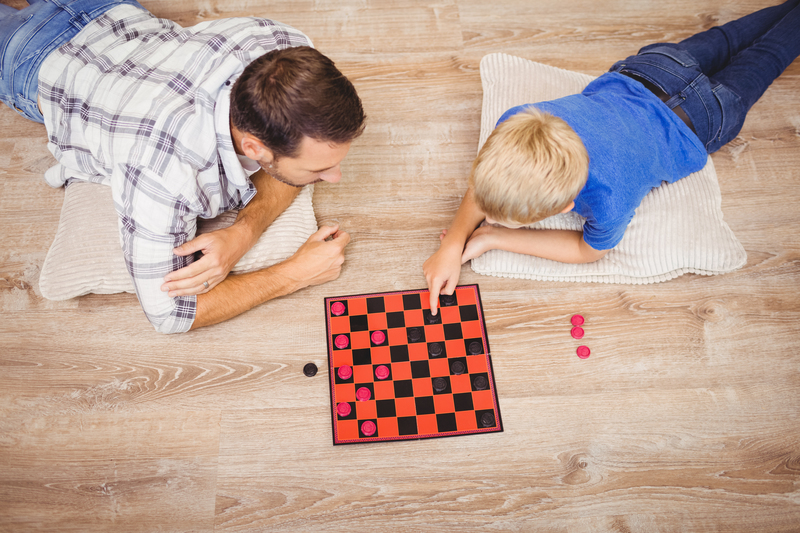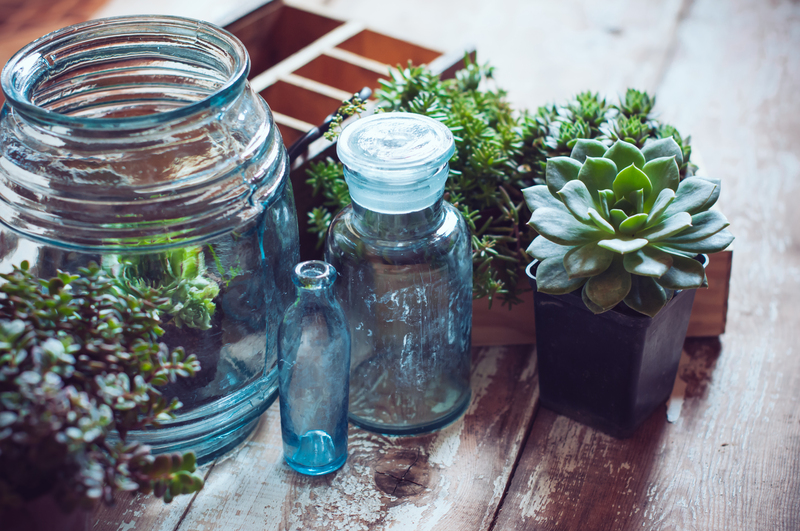Reclaim Your Living Spaces Through Thoughtful Clutter and Hoarder Cleanup
Are your living spaces feeling cramped and overwhelming? Is clutter taking the joy out of your home? Reclaiming your living spaces through thoughtful clutter and hoarder cleanup is not just about tossing things away--it's about transforming your environment and your quality of life. In this comprehensive guide, we'll explore effective strategies, expert tips, and emotional support to help you conquer chaos and rediscover the comfort of your home. Whether you're facing mild clutter or severe hoarding tendencies, these insights will empower you to take positive steps towards a functional and inviting space.

Understanding the Roots of Clutter and Hoarding
Clutter is more than just extra stuff lying around; it is often a reflection of our habits, routines, and emotional states. For some, the accumulation happens quietly, building over months or years. In more serious cases, hoarding disorder can develop, compelling individuals to save items excessively and making decluttering a daunting task.
- Emotional Attachment: Many people keep things for sentimental reasons, believing objects hold memories they can't bear to lose.
- Fear of Waste: Some resist letting go out of fear they might need something "one day."
- Overwhelm: Clutter can escalate to the point that cleaning or organizing feels impossible to tackle alone.
- Mental Health: Hoarding disorder is recognized as a mental health issue, impacting well-being and daily living.
It's important to approach clutter and hoarder cleanups with empathy and understanding. The journey to reclaiming your living spaces should be a positive, guilt-free process.
Why a Clean, Organized Home Matters
A peaceful, organized environment doesn't just look better--it supports your physical and mental health. Numerous studies have linked cluttered spaces to increased stress, anxiety, and even depression. On the flip side, restoring your environment through clutter and hoarder cleanup can deliver several key benefits:
- Reduces Anxiety: A tidy environment calms the mind and promotes relaxation.
- Boosts Productivity: It's easier to focus and accomplish tasks when your space is clear.
- Improves Safety: Less clutter means fewer trip hazards and improved fire safety.
- Enhances Social Connection: When you're proud of your space, inviting friends and family over becomes enjoyable again.
Effective Strategies for Decluttering Every Room
A successful clutter and hoarder cleanout requires a systematic approach. Let's break down the best practices for each area of your home, focusing on step-by-step organization and mindful decision-making.
1. Setting Achievable Goals
Before you begin, assess the severity of the clutter and set realistic goals. Maybe your aim is clearing out a single room or restoring the entire home over several weeks. The key is to avoid overwhelm:
- List your main problem areas.
- Rank them by urgency--start with the space you use most.
- Allocate specific time blocks (e.g., two hours daily) for decluttering.
2. Sorting Process: The Four-Box Method
One proven technique is the Four-Box Method--label boxes as Keep, Donate, Sell, and Trash. As you go through your belongings:
- Pick up each item and decide which box it fits best.
- If you haven't used or even thought about the item in the last year, it's a strong candidate for removal.
- Be honest and avoid second-guessing yourself--your goal is to create space, not excuses!
3. Room-By-Room Decluttering Tips
- Living Room:
- Start with visible surfaces: coffee tables, bookshelves, entertainment centers.
- Remove items that don't belong or serve a daily function.
- Store remotes, magazines, and small items in designated bins or baskets.
- Kitchen:
- Clear countertops first--store small appliances you use rarely.
- Check food expiration dates and discard old pantry items.
- Sort Tupperware--match lids and get rid of extras.
- Bedrooms:
- Organize closets by season and usage.
- Donate clothes you no longer wear.
- Keep nightstands clear with only essentials.
- Bathrooms:
- Empty cabinets and drawers.
- Discard expired medications and old toiletries.
- Use containers to group similar items together for easy access.
- Garage and Storage Areas:
- Sort seasonal decor, tools, and sports equipment.
- Donate or recycle items that have been sitting unused for extended periods.
- Install shelving or pegboards to maximize vertical storage.
4. Dealing with Sentimental Clutter
Many people struggle most with sentimental items--photos, childhood mementos, gifts, and inherited objects. To thoughtfully reclaim your space without guilt:
- Choose a small, meaningful selection to keep. Display or store them carefully.
- Consider digitizing photos and documents to preserve memories while saving space.
- If letting go is hard, ask a friend or family member for a supportive second opinion.
Special Considerations: Hoarder Cleanup
Hoarder cleanup presents unique challenges. Unlike ordinary clutter, hoarding disorder involves complex emotional and psychological barriers. Here's how to address it with care:
- Professional Help: Engaging trained specialists can ensure both physical and emotional safety.
- Non-Judgmental Support: Approach loved ones with compassion--shame and criticism are counterproductive.
- Stepwise Progress: Celebrate small victories. Even clearing just one room or zone at a time is a success.
- Continuous Maintenance: Hoarding is rarely a one-time fix. Establish routines for regular cleaning and organization.
When to Consider Professional Hoarding Cleanup Services
If the situation feels unmanageable, don't hesitate to call professional clutter cleanup services. Here's when expert intervention is needed:
- There is a risk to health from biohazards, mold, pest infestations or structural issues.
- Accumulated items block exits, stairways, or present fire hazards.
- The person experiencing hoarding disorder resists help or is unable to function in daily life.
- Legal or municipal action is threatened due to unsafe conditions.
Experienced hoarder cleanup companies provide discretion, sensitivity, and efficiency--restoring not just cleanliness, but dignity and safety.
Decluttering with Sustainability in Mind
A thoughtful clutter cleanup isn't about filling landfills with unwanted stuff. Instead, focus on environmentally conscious options:
- Donate usable items to local charities or organizations in need.
- Recycle electronics, metal, glass, and cardboard whenever possible.
- Host a garage sale or give away items on neighborhood sharing platforms.
- Participate in community swap events to ensure items find a second life.
By making eco-friendly decisions, you declutter your home and contribute positively to your community and the planet.
Organizational Tools and Habits For Lasting Results
Invest in Practical Storage Solutions
The right containers, shelving, and organizational tools make it easier to maintain order. Consider:
- Clear storage bins for visibility and stackability.
- Drawer organizers and dividers for small items.
- Over-the-door racks or hanging shelves to capitalize on vertical space.
- Labels to make finding and returning items simple.
Adopt New Habits for Clutter-Free Living
- Implement a "one in, one out" rule for clothes, books, and gadgets.
- Schedule seasonal or monthly decluttering sessions into your calendar.
- Involve the whole family in tidying routines--teach kids the value of organization early.
- Store items closest to where they're used.
- Commit to a five-minute tidy-up at the end of each day.
Emotional and Psychological Benefits of Clearing Clutter
An orderly environment does more than just free up physical space. Reclaiming your living spaces through clutter and hoarder cleanup can spark significant psychological transformation:
- Sense of Control: Conquering clutter gives you a greater feeling of agency and accomplishment.
- Clarity and Focus: Less visual chaos supports improved concentration and decision-making.
- Elevated Mood: Bright, open spaces allow for relaxation and enjoyment.
- Healthier Relationships: It's easier to connect with loved ones when you're not embarrassed about your home's condition.
- Positive Self-Image: Stepping into a clean, tidy home reaffirms self-worth and pride.

Frequently Asked Questions About Clutter and Hoarder Cleanup
How often should I declutter my home?
It's recommended to conduct a thorough clutter cleanout at least once or twice a year, with minor decluttering sessions every season. Consistency is key!
What if my partner or family member is resistant to decluttering?
Approach the topic with sensitivity, focusing on benefits rather than blame. Offer support, suggest starting with shared spaces, and consider involving a mediator or professional if needed.
Is it possible to overcome hoarding on your own?
Recovery from severe hoarding is possible, but often requires a combination of therapeutic support and professional hoarder cleanup services. Don't be afraid to ask for help--progress is a journey.
How can I maintain a clutter-free home after cleaning up?
Develop habits like "one in, one out," regular maintenance sessions, and intentional purchasing. Enlist help from family or friends, and celebrate your success along the way.
Take the First Step: Reclaim Your Living Spaces for Good
Whether you're just facing a few piles or dealing with years of accumulated possessions, reclaiming your living spaces through thoughtful clutter and hoarder cleanup is a transformative process. By organizing mindfully, respecting emotional attachments, and adopting new habits, you can enjoy a home that supports your well-being and lifestyle.
Ready to start? Remember, every small step brings you closer to a brighter, more spacious, and restful home. Don't wait--embrace the opportunity to reclaim your life, one room at a time.
